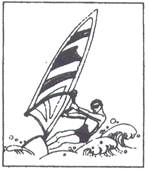题目内容
had _____ looks on their faces.
B. Puzzled; puzzled
C. Puzzling; puzzling
D. Puzzling; puzzled

 长江作业本同步练习册系列答案
长江作业本同步练习册系列答案The New York Times announced Wednesday that it intended to charge frequent readers for access to its Web site, a step being debated across the industry that nearly every major newspaper has so far feared to take.
 Starting in early 2011, visitors
to NYTimes.com will get a certain number of articles free every month before
being asked to pay a flat fee for unlimited access. Subscribers(订阅者) to the newspaper’s print edition will
receive full access to the site.
Starting in early 2011, visitors
to NYTimes.com will get a certain number of articles free every month before
being asked to pay a flat fee for unlimited access. Subscribers(订阅者) to the newspaper’s print edition will
receive full access to the site.
But executives(执行主管) of The New York Times Company said they could not yet answer fundamental questions about the plan, like how much it would cost or what the limit would be on free reading. They stressed that the amount of free access could change with time, in response to economic conditions and reader demand.
Still, publishers fear that income from digital subscriptions would not compensate for the resulting loss of audience and advertising revenue.
NYTimes.com is by far the most popular newspaper site in the country, with more than 17 million readers a month in the United States, according to Nielsen Online, and analysts say it is easily the leader in advertising revenue, as well. That may make it better positioned than other general-interest papers to charge — and also gives The Times more to lose if the move backfires.
The Times Company has been studying the matter for almost a year, searching for common ground between pro- and anti-pay camps — a debate mirrored in dozens of media-watching blogs — and the system will not go into effect until January 2011. Executives said they were not bothered by the prospect of absorbing barbs(冷嘲热讽) for moving cautiously.
“There’s no prize for getting it quick,” said Janet L. Robinson, the company’s president and chief executive. “There’s more of a prize for getting it right.”
1.The first paragraph serves as a __________.
A. conclusion B. comment C. lead-in D. background
2. We may know from the passage that __________.
A. non-paying readers will get no access to NYTimes.com
B. readers will be charged more to read more articles on NYTimes.com
C. visitors to NYTimes.com frequently will get more free online articles
D. subscribers to the print edition will enjoy free access to the site as well
3. Which of the following best describes The Times Company's attitude towards its announcement?
A. rude B. serious C. hurried D. doubtful
4. The passage is mainly about_________.
A. the Times to offer free access to its web site
B. the Times to increase audience to its web site
C. the Times to attract advertisement to its web site
D. the Times to charge for frequent access to its web site
